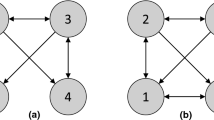
Overview
- Includes supplementary material: sn.pub/extras
Part of the book series: SpringerBriefs in Electrical and Computer Engineering (BRIEFSELECTRIC)
Access this book
Tax calculation will be finalised at checkout
Other ways to access
About this book
Similar content being viewed by others
Keywords
Table of contents (6 chapters)
-
Front Matter
-
Back Matter
Authors and Affiliations
Bibliographic Information
Book Title: Practical Approaches to Causal Relationship Exploration
Authors: Jiuyong Li, Lin Liu, Thuc Duy Le
Series Title: SpringerBriefs in Electrical and Computer Engineering
DOI: https://doi.org/10.1007/978-3-319-14433-7
Publisher: Springer Cham
eBook Packages: Computer Science, Computer Science (R0)
Copyright Information: The Author(s) 2015
Softcover ISBN: 978-3-319-14432-0Published: 25 March 2015
eBook ISBN: 978-3-319-14433-7Published: 02 March 2015
Series ISSN: 2191-8112
Series E-ISSN: 2191-8120
Edition Number: 1
Number of Pages: X, 80
Number of Illustrations: 55 b/w illustrations
Topics: Artificial Intelligence, Data Mining and Knowledge Discovery



